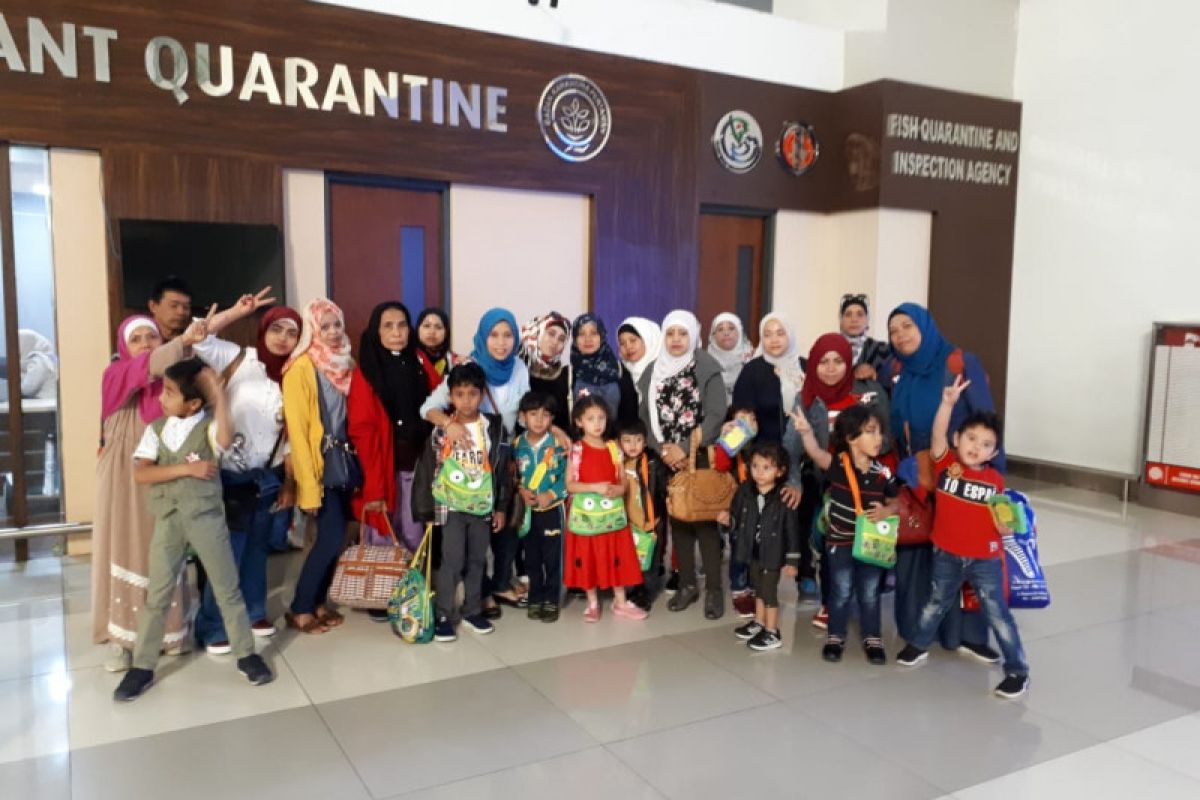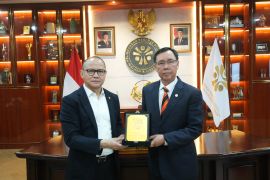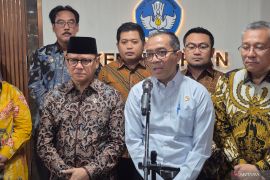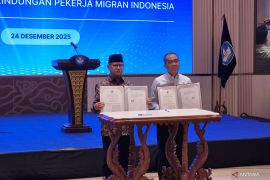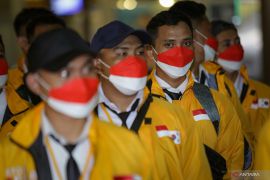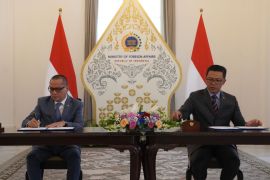Along with the children, the embassy also repatriated a number of migrant workers whose residence permits had expired. The total number of Indonesians who were repatriated in the last amnesty program was 49 citizens.
In a statement received by Antara here on Wednesday, the Indonesian Ambassador to Jordan, Andy Rachmianto, said the repatriation involved the sixth and final group during the amnesty program this year.
"With this last repatriation, the Indonesian Embassy in Amman has managed to vacate its shelter, which is the first time in the history of the protection of Indonesian citizens in Jordan," Ambassador Andy said.
During the last two years, the Indonesian Embassy in Amman has repatriated 692 migrant workers, including children.
In 2019, through the amnesty program of the Jordanian Government, the Indonesian Embassy in Amman helped repatriate 210 migrant workers and 14 children who were born from illegal relations in the country.
With the 2019 Amnesty policy, the Indonesian Embassy in Amman has worked to return illegal migrant workers, as well as to obtain Indonesian citizenship for children who were born from illegal relationships.
"The repatriation of the final phase of the amnesty program in 2019 marks the citizenship status of the children of migrant workers. During this time, their status was unclear," Ambassador Andy said.
Meanwhile, the Labor Attache of the Indonesian Embassy in Amman, Suseno Hadi, added that the children were born to migrant worker mothers who did not have legal documents.
He noted that there were some 30 children born from illegal relations to 20 female Indonesian migrant workers in Jordan.
"Migrant workers who use the amnesty program to return to the country are those whose employment contracts and residence permits in Jordan have expired, but forced themselves to work illegally," Suseno said.
Data obtained from Jordanian Immigration authorities in 2019 indicates there are still some 1,000 people who do not have work permits or residence permits in Jordan, which makes them vulnerable under the Law.
This repatriation is part of the state's efforts to protect Indonesian citizens abroad.
Suseno said the main problem faced by Indonesian workers participating in the amnesty program was the inability to pay fines for expired residence permits.
The amount of these fines is calculated from the time when the official residence permit expires, and is set at about Rp29,500 per day.
In addition, those who leave their employers before their contracts expire are often charged with theft and illicit relations with foreigners.
This amnesty policy was in place for six months, starting from December 12, 2018 and ending on June 11, 2019. The Indonesian Embassy in Amman has conducted various information campaigns through meetings with Indonesian workers, as well as by telephone and social media.
(INE)
Translator: Bambang Purwanto
Editor: Eliswan Azly
Copyright © ANTARA 2019
